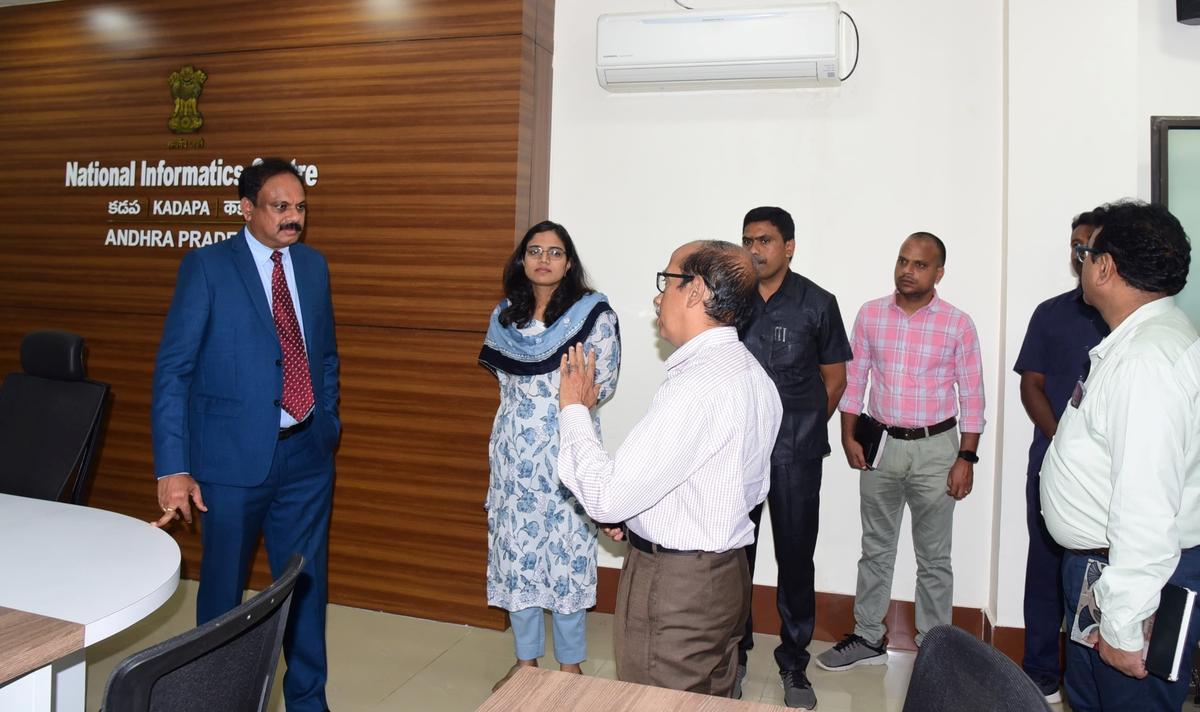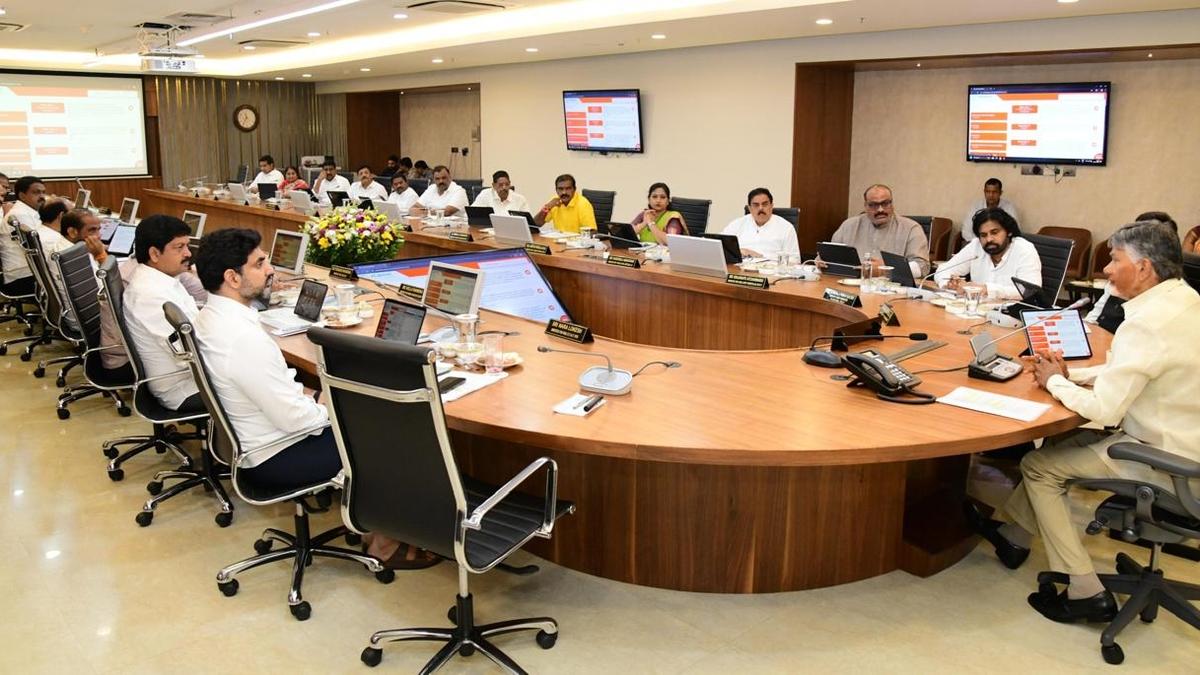Home / andhra-pradesh / Massive Crackdown on Illegal Poppy Cultivation in Arunachal Pradesh
Massive Crackdown on Illegal Poppy Cultivation in Arunachal Pradesh
By: My India Times
6 minutes read 69Updated At: 2025-02-24

The Central Bureau of Narcotics (CBN) has initiated one of its most significant operations against illegal poppy cultivation in Arunachal Pradesh, revealing a substantial connection between drug cartels and insurgent groups. This anti-narcotics initiative targeted in excess of 6,000 hectares of poppy fields, representing one of the most comprehensive poppy eradication efforts in the region's history.
In the face of significant challenges posed by armed insurgents, government officials remained resolute in their efforts to combat the illicit trade that is contributing to crime and militancy in the Northeast. The successful execution of this initiative represents a notable achievement in India's persistent fight against drug trafficking, especially in border areas where illegal opium cultivation has become prevalent.
Collaboration with Security Forces and Government Agencies
The enforcement operation was executed through collaborative efforts involving several agencies, including the Arunachal Pradesh Police, Assam Rifles, Narcotics Control Bureau (NCB), and paramilitary forces. Supported by the state government and intelligence organizations, the initiative focused on the critical districts of Lohit, Namsai, and Changlang, where illegal opium farming has been escalating at a concerning rate.
The magnitude of this operation underscores the critical necessity for a coordinated approach to combat drug trafficking in the region. The partnership between state and federal agencies not only ensured the effectiveness of the eradication initiative but also provided robust protection against potential militant backlash.
₹500 Crore Worth of Poppy Fields Destroyed
According to initial estimates, the total value of destroyed poppy plantations exceeds ₹500 crore. This initiative has resulted in a significant financial obstacle for the drug cartels and insurgent groups that have been deriving profits from opium cultivation.
Illicit poppy farming has served as a major revenue stream for various insurgent factions, allowing them to acquire weaponry, finance training facilities, and sustain their operations. By eradicating such a substantial volume of poppy, the government has effectively disrupted the narcotics trade while also diminishing the financial grip of the insurgents.
Authorities anticipate that the destruction of these illegal crops will result in a considerable reduction in drug supply networks, consequently decreasing both local addiction levels and international trafficking activities.
Insurgent Groups Threaten Officials and Workers
The crackdown has not been without resistance. Insurgent groups like NSCN (K-YA) and ULFA (Independent) have issued death threats to officials, law enforcement personnel, and local workers involved in the operation.
Many farmers and laborers, fearing retaliation, refused to participate in the government-led destruction of poppy fields. Despite these threats, Assam Rifles and other security forces ensured the smooth execution of the operation by deploying heavily armed personnel to safeguard workers and officials.
In some areas, violent clashes were narrowly avoided due to timely intervention by security forces. However, due to bad weather conditions, rough terrain, and insurgent activity, officials were only able to clear about 60% of their total target.
Why Farmers Continue to Cultivate Poppy
One of the biggest challenges in curbing illegal opium production is the economic dependency of farmers on poppy cultivation. In regions like Arunachal Pradesh, where alternative employment opportunities are scarce, poppy farming provides a lucrative income for many families.
Poppy crops yield significantly higher profits compared to traditional agricultural produce, such as rice or maize. Many farmers struggle with poverty, lack of government support, and limited market access, making poppy cultivation their only viable source of livelihood.
Additionally, drug cartels and insurgent groups offer protection and financial incentives to farmers willing to grow opium, further entrenching the illegal trade in local communities. Without strong government intervention and economic alternatives, many farmers are likely to resume poppy cultivation in hidden areas.
A Deep-Rooted Connection
The link between insurgency and the narcotics trade in Northeast India is well-documented. Groups like NSCN, ULFA, and other armed outfits have long been involved in the illegal drug economy, using opium sales to finance their military activities.
These militant groups often act as protectors of poppy farmers, preventing law enforcement from destroying illegal crops and ensuring that drug shipments reach international markets. In return, they collect "taxes" or commission from farmers, generating substantial revenue for their underground operations.
The crackdown on poppy cultivation is, therefore, not just a fight against drugs but also a strategic counter-insurgency measure to weaken militant networks that rely on narcotics trafficking for financial survival.
Government Initiatives to End Poppy Cultivation
To address the root cause of illegal poppy farming, the government has launched several rehabilitation and alternative livelihood programs for affected farmers. These initiatives include:
Promoting High-Value Cash Crops – Encouraging farmers to switch to tea, ginger, cardamom, and rubber cultivation, which offer stable incomes.
Financial Aid and Skill Training – Providing monetary incentives and training programs for farmers to adopt legal agricultural practices.
Infrastructure Development – Building better roads, storage facilities, and market access points to support legal agricultural businesses.
Community Awareness Programs – Educating farmers and youth on the dangers of opium production and the long-term benefits of sustainable farming.
Use of Advanced Technology for Surveillance
To prevent the resurgence of illegal poppy cultivation, authorities are now employing advanced surveillance methods, including:
Satellite Imaging & AI-Based Monitoring – To track and map suspected poppy fields.
Drone Surveillance – To locate hidden opium plantations in remote regions.
Real-Time Reporting Apps – To enable citizens and officials to report suspicious activities anonymously.
These technological interventions will help ensure that destroyed poppy fields are not secretly re-cultivated and that illegal drug networks remain under constant scrutiny.
Economic Blow to Insurgent Groups
By destroying over ₹500 crore worth of poppy, the government has delivered a massive economic blow to insurgent groups that depend on drug money for survival. This financial loss could weaken their ability to recruit new members, procure weapons, and sustain terror operations in the region.
However, officials caution that this is just one battle in a long war. The drug trade is highly adaptable, and insurgent groups may attempt to relocate their activities to other areas. A continuous and coordinated crackdown is necessary to permanently disrupt the narcotics-insurgency nexus.
....
The Central Bureau of Narcotics (CBN) has initiated one of its most significant operations against illegal poppy cultivation in Arunachal Pradesh, revealing a substantial connection between drug cartels and insurgent groups. This anti-narcotics initiative targeted in excess of 6,000 hectares of poppy fields, representing one of the most comprehensive poppy eradication efforts in the region's history.
In the face of significant challenges posed by armed insurgents, government officials remained resolute in their efforts to combat the illicit trade that is contributing to crime and militancy in the Northeast. The successful execution of this initiative represents a notable achievement in India's persistent fight against drug trafficking, especially in border areas where illegal opium cultivation has become prevalent.
Collaboration with Security Forces and Government Agencies
The enforcement operation was executed through collaborative efforts involving several agencies, including the Arunachal Pradesh Police, Assam Rifles, Narcotics Control Bureau (NCB), and paramilitary forces. Supported by the state government and intelligence organizations, the initiative focused on the critical districts of Lohit, Namsai, and Changlang, where illegal opium farming has been escalating at a concerning rate.
The magnitude of this operation underscores the critical necessity for a coordinated approach to combat drug trafficking in the region. The partnership between state and federal agencies not only ensured the effectiveness of the eradication initiative but also provided robust protection against potential militant backlash.
₹500 Crore Worth of Poppy Fields Destroyed
According to initial estimates, the total value of destroyed poppy plantations exceeds ₹500 crore. This initiative has resulted in a significant financial obstacle for the drug cartels and insurgent groups that have been deriving profits from opium cultivation.
Illicit poppy farming has served as a major revenue stream for various insurgent factions, allowing them to acquire weaponry, finance training facilities, and sustain their operations. By eradicating such a substantial volume of poppy, the government has effectively disrupted the narcotics trade while also diminishing the financial grip of the insurgents.
Authorities anticipate that the destruction of these illegal crops will result in a considerable reduction in drug supply networks, consequently decreasing both local addiction levels and international trafficking activities.
Insurgent Groups Threaten Officials and Workers
The crackdown has not been without resistance. Insurgent groups like NSCN (K-YA) and ULFA (Independent) have issued death threats to officials, law enforcement personnel, and local workers involved in the operation.
Many farmers and laborers, fearing retaliation, refused to participate in the government-led destruction of poppy fields. Despite these threats, Assam Rifles and other security forces ensured the smooth execution of the operation by deploying heavily armed personnel to safeguard workers and officials.
In some areas, violent clashes were narrowly avoided due to timely intervention by security forces. However, due to bad weather conditions, rough terrain, and insurgent activity, officials were only able to clear about 60% of their total target.
Why Farmers Continue to Cultivate Poppy
One of the biggest challenges in curbing illegal opium production is the economic dependency of farmers on poppy cultivation. In regions like Arunachal Pradesh, where alternative employment opportunities are scarce, poppy farming provides a lucrative income for many families.
Poppy crops yield significantly higher profits compared to traditional agricultural produce, such as rice or maize. Many farmers struggle with poverty, lack of government support, and limited market access, making poppy cultivation their only viable source of livelihood.
Additionally, drug cartels and insurgent groups offer protection and financial incentives to farmers willing to grow opium, further entrenching the illegal trade in local communities. Without strong government intervention and economic alternatives, many farmers are likely to resume poppy cultivation in hidden areas.
A Deep-Rooted Connection
The link between insurgency and the narcotics trade in Northeast India is well-documented. Groups like NSCN, ULFA, and other armed outfits have long been involved in the illegal drug economy, using opium sales to finance their military activities.
These militant groups often act as protectors of poppy farmers, preventing law enforcement from destroying illegal crops and ensuring that drug shipments reach international markets. In return, they collect "taxes" or commission from farmers, generating substantial revenue for their underground operations.
The crackdown on poppy cultivation is, therefore, not just a fight against drugs but also a strategic counter-insurgency measure to weaken militant networks that rely on narcotics trafficking for financial survival.
Government Initiatives to End Poppy Cultivation
To address the root cause of illegal poppy farming, the government has launched several rehabilitation and alternative livelihood programs for affected farmers. These initiatives include:
Promoting High-Value Cash Crops – Encouraging farmers to switch to tea, ginger, cardamom, and rubber cultivation, which offer stable incomes.
Financial Aid and Skill Training – Providing monetary incentives and training programs for farmers to adopt legal agricultural practices.
Infrastructure Development – Building better roads, storage facilities, and market access points to support legal agricultural businesses.
Community Awareness Programs – Educating farmers and youth on the dangers of opium production and the long-term benefits of sustainable farming.
Use of Advanced Technology for Surveillance
To prevent the resurgence of illegal poppy cultivation, authorities are now employing advanced surveillance methods, including:
Satellite Imaging & AI-Based Monitoring – To track and map suspected poppy fields.
Drone Surveillance – To locate hidden opium plantations in remote regions.
Real-Time Reporting Apps – To enable citizens and officials to report suspicious activities anonymously.
These technological interventions will help ensure that destroyed poppy fields are not secretly re-cultivated and that illegal drug networks remain under constant scrutiny.
Economic Blow to Insurgent Groups
By destroying over ₹500 crore worth of poppy, the government has delivered a massive economic blow to insurgent groups that depend on drug money for survival. This financial loss could weaken their ability to recruit new members, procure weapons, and sustain terror operations in the region.
However, officials caution that this is just one battle in a long war. The drug trade is highly adaptable, and insurgent groups may attempt to relocate their activities to other areas. A continuous and coordinated crackdown is necessary to permanently disrupt the narcotics-insurgency nexus.
By: My India Times
Updated At: 2025-02-24
Tags: andhra-pradesh News | My India Times News | Trending News | Travel News
Join our WhatsApp Channel









































































































.png)
 (1).png)























